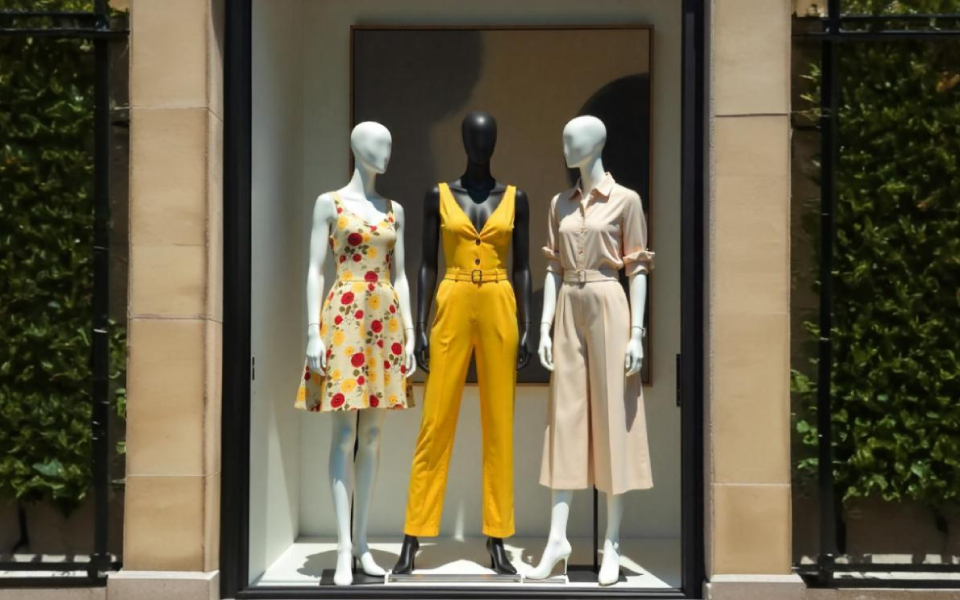Violeta Arnaiz Medina. Director of Intellectual Property, Artificial Intelligence and Software. PONS IP
I’m going to tell you a story. A story about something new –the then-revolutionary NFTs– which was so dazzling that it seemed to be superior to something old like “boring” copyright.
And so it happened: it was May 2022 and the world watched in confusion as astronomical amounts were paid for collectible NFT monkeys. In this context, Mango, which was celebrating the opening of a store on New York’s legendary Fifth Avenue, set up a brilliant coup: exhibiting several original paintings by Miró, Tàpies and Barceló (belonging to the collection of its late founder, Isak Andic) in its new facilities, while simultaneously publishing these works, restored and integrated into video art pieces and converted into NFTs, on all types of digital platforms. Mediterranean, tradition and modernity. A masterful play, except for one tiny detail: these uses had not been authorised by the authors/rights holders of the works, and the lawsuit from VEGAP, the company that represents the rights of visual artists, came swiftly.
The case raised an interesting dilemma: Were the rights of the company that owned the paintings sufficient to tokenise these works, convert them into NFTs, transform them, and display them to the public in the formats described?
The judgment, the first to prosecute an alleged intellectual property infringement in the metaverse, was eagerly awaited. Could copyright prevent such an al dente prank, which brought together NFTs, private art collections, a large clothing chain, and New York City as a backdrop? Well, we know the answer. The judgment of the 9th Commercial Court of Barcelona[1] rejected VEGAP’s claims, using legal reasoning that many of us found questionable.
VEGAP appealed the judgment and the Provincial Court of Barcelona[2] upheld its appeal. The ruling, which is not final (Mango has already announced that it will appeal to the Supreme Court), completely turns the case around. It declares that the defendant infringed the economic and moral rights of the authors of the works used, since they used them without authorisation and for commercial purposes, and orders the defendant to pay compensation of nearly one million euros. We review some of the most interesting aspects of the decision.
Regarding the scope of the right of public exhibition belonging to the company that owns the paintings (a right that has traditionally allowed the owner of an original painting or photograph to display it in their home or temporarily lend it to galleries or museums without having to request the author’s authorisation), it is concluded that although this is sufficient for Mango to exhibit the originals in its New York store, this right cannot be extended to the digital world (“this right cannot be extrapolated to the interactive exhibition of the original works”). Therefore, the digitisation of works and the creation of NFTs from these works, as well as their publication in the metaverse or any digital network, fall outside the right of public exhibition.
The judgment also rejects the Court of First Instance’s theory that the consent given by authors for their works to be displayed in the 1970s prevented any possibility of subsequent control, even in the case of forms of use that were unknown at the time (such as tokenisation and availability in NFT format on digital platforms). Accordingly, the court considers it “evident” that this consent referred to the disclosure of the works “in a physical format for their exhibition and commercialisation in the real world, and not in digital or virtual environments” and that their exhibition linked to the purely commercial purposes of a fashion brand “affects the reputation and interests of the authors”. The Court also rules that the five works suffered a “serious violation of their integrity” and were subjected to “significant material modifications” through the addition of “graphic elements, animations, and sound”.
Lastly, it is ruled out that the doctrine of fair use or harmless use, derived from common law (which the Court of First Instance had furthermore applied in a questionable manner, based on an alleged not-for-profit motive on the part of the plaintiff, but without taking into account the unequivocally commercial, advertising and global brand positioning purpose that the use entailed) can be an argument to dismiss the infringement of the plaintiffs’ rights of use, clarifying that, in the scope of the European Union, there is a closed list of limits and exceptions applicable to copyright that cannot be extended by invoking figures outside our law.
The shine of novelty is fleeting, and it is often the case that, once it is dulled by the passage of time, calm and rigorous legal analysis ultimately prevails. Those of us who work in intellectual property, sensitive to the ups and downs of technology and trends, are very aware that everything is constantly changing and that nothing –or almost nothing– is set in stone. Nevertheless, if we want to maintain the challenging balance that we, as a society, have undertaken (protecting creators and their right to live off their work vs. freedom to use common heritage and not unjustifiably hinder cultural and technological progress), an in-depth understanding of the interests at stake and careful thought about the impact of each new development on the system are necessary, so that the legal and jurisprudential response is balanced and fair. Work in progress.
[1] Judgment No. 776/2022 of the 9th Commercial Court of Barcelona, of 11 January 2024.
[2] Judgment No. 731/2025, of 5 June 2025




